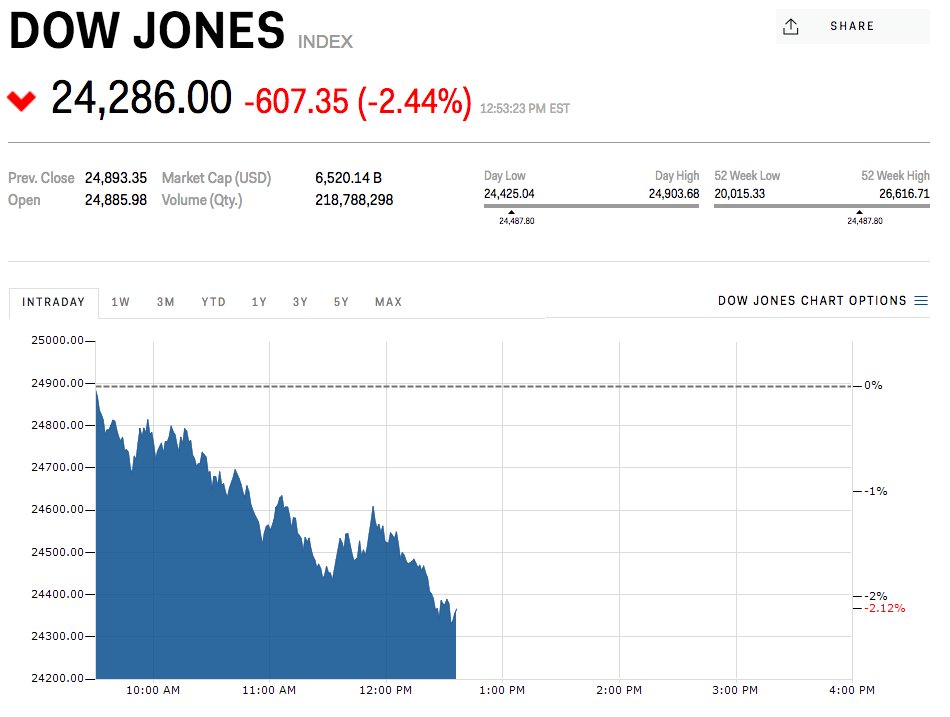- The stock market is weaker again on Thursday as a volatile week of selling continues.
- Stocks have failed to hold a strong rebound since Friday, when a better-than-expected report on wages increased worries about higher US inflation.
Stocks are rolling over again.
At 12:56 p.m. ET, the Dow Jones industrial average was down 668 points (-2.7%), the S&P 500 was down 64 points (-2.4%), and the Nasdaq was down 190 points (-2.7%).
Stocks have failed to hold a strong rebound since Friday, when a better-than-expected report on wages increased worries about higher US inflation. The selling continued this week, worsened by technical factors including the implosion of trading strategies that had bet on low volatility.
Stocks rallied strongly on Wednesday, with the Dow closing up 567 points, or 2.3%. By Thursday, the index of large companies including Boeing and Apple returned to the red for 2018.
The sharp moves this week have raised questions about how quickly investors would be willing to buy stocks at cheaper prices, or stay cautious amid the threat of higher inflation. After a long period of low borrowing costs that benefitted companies, the Federal Reserve may be moved to raise interest rates faster than investors expect.
“There’s no rush to come in here and buy this market because it’s not just a technical selloff,” said Larry Hatheway, the chief economist at GAM Investments. “There are several fundamental stories that lie behind it, and that’s preventing people who might see value from jumping in at better prices to exploit it,” he told Business Insider.
Several other strategists, however, have said this is an opportunity to ‘buy the dip.’
The Cboe’s Volatility Index was weaker on Thursday, near 27.41. However, its still more than twice as high as its recent, unprecedented lows, having suffered its biggest one-day spike ever on Monday.
This so-called fear gauge tracks traders’ expectations for future instability and moves in the opposite direction to the S&P 500 most of the time.
“Expect more volatility from here,” said Jeremy Hale, the head of asset allocation and global macro at Citi, in a note on Thursday.
“Rather than try to catch a falling knife, we would rather wait for signs of stabilization.”














